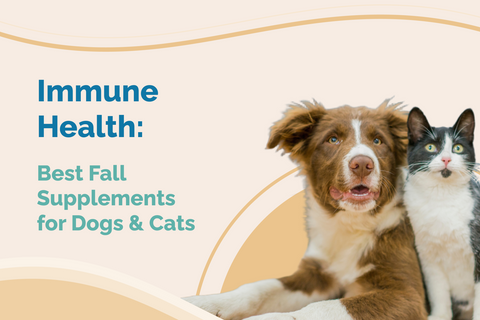

Top Pet Safe Plants for Your Home This Holiday Season
The holidays should feel merry for every feline friend and canine companion—not stressful. At Prana Pets, our promise is Natural Wellness, Unconditional Love, and care Backed by Science. This guide makes it simple to choose pet safe plants that brighten your living space without risking tummy upsets or worse. You’ll get easy house plants by light level, quick toxicity red flags, and how gentle supplements—Liver Supplement, Kidney Health Support, and Immunity Blend—can support overall wellness during the busiest time of year.
Why Pet Parents Should Be Picky With Holiday Greenery (Simple & Important)
Curious pets explore unfamiliar objects. A shiny leaf at pet’s reach can become a snack—leading to mild digestive issues or serious plant poisoning symptoms. Some classics (looking at you, lilies, mistletoe, holly berries, sago palm) are hazardous; even “safe” foliage can cause a little vomiting if a pet chows down. The ASPCA maintains the most trusted toxic and non-toxic plant lists for dogs and cats—bookmark them and always verify before you buy.
Holiday reality check (stats): The ASPCA Poison Control handled 451,000+ toxicity calls in 2024—plants remain a top category, with notable year-over-year increases. Save the hotline: (888) 426-4435 (fees may apply).
Pet-Safe Holiday Plants That Look Festive (and Actually Are Safe)
These friendly houseplants bring cheer without the fear. Place them where pets can’t knock them over, and use bright indirect light or medium indirect light as noted.
-
Christmas cactus (Schlumbergera): Non-toxic; a true blooming beauty with beautiful blooms in red, pink, or white. Thrives in indirect light with regular attention to watering.
-
African violet: Compact indoor plants with velvet leaves, great on a sill with indirect light; safe for cats and dogs.
-
Orchids (Phalaenopsis): A chic statement plant for a new place; non-toxic, but keep out of nibble range.
-
Areca palm / Parlor palm / Bamboo palm: Lush, low maintenance “stylish air purifiers” that tolerate low light; all are non-toxic.
-
Spider plants: Classic, easy care; non-toxic but may tempt playful cats—consider hanging baskets.
-
Cast iron plant: A champion of low light and missed waterings; safe for pets, ideal for an indoor garden zone.
-
Boston fern / Maidenhair fern: Feathery fronds, fuzzy leaves vibe, pet-safe (don’t confuse with toxic “asparagus fern”).
-
Polka dot plants (Hypoestes): Bright speckles pop under medium indirect light; generally safe, though nibbling can cause mild GI upset.
-
Prayer plant / “striking peacock plant” (Calathea/Maranta): Pet-safe foliage that folds at night; loves specific light requirements (no harsh sun)
-
Hoya carnosa (wax plant): A trailing bonus of all hoyas: safe, sculptural vines; thrives in bright indirect light.
-
Friendship plant (Pilea involucrata): Soft quilted leaves; safe and cute for shelves.
-
Money tree (Pachira aquatica): Non-toxic “good-luck” statement plant; great for living rooms.
-
Cat grass: A perfect plant for types of pets who like to graze; channels chewing to a safe option (wheatgrass blends).
Articleproducts1
Popular Holiday Plants to Avoid (Toxic or Troublesome)
-
Lilies (all true lilies): Extremely dangerous to cats; even tiny exposures can harm kidneys. Not a best choice for homes with cats.
-
Mistletoe & holly: Both can trigger vomiting/diarrhea; keep well out of reach or swap for safe alternatives.
-
Peace lily, ZZ plant, aloe vera, calla lily: Common house plants but poisonous (oxalates/saponins). Choose pet-safe lookalikes instead.
-
Sago palm: High-risk; tiny amounts can be life-threatening. Avoid entirely.
Mini Care Guide: Keep Plants Happy (and Pets Safer)
Healthy plants are less tempting to chew and less likely to drop mushy leaves.
-
Match specific light requirements: label plants low light, medium, or bright indirect light to the right spot.
-
Water wisely to prevent signs of root rot (sour smell, wilting despite wet soil).
-
Elevate or hang favorites outside of pet’s reach; consider shelves or plant stands.
-
Rotate “selection of surprise plants” seasonally, but verify safety first via ASPCA’s database.
-
If you buy online, check retailer policies (free shipping, replacements) and ensure the listing labels plants as safe house plants/pet friendly plants.
Related Asked Questions
Where can I buy pet-friendly plants online?
Look for shops that filter by pet friendly plants/safe house plants and disclose scientific names. Before checkout, verify each plant on the ASPCA database, then confirm careful preparation for shipping (heat packs in cold weather). Save order contact information and your local veterinarian/pet poison control center numbers in case of an emergency.
Are succulents generally safe for cats and dogs?
Some are, many aren’t. Aloe vera and jade are problematic; string of pearls can upset stomachs. If you love trailing looks, try string of turtles (Peperomia) or hoya carnosa instead—both are widely listed as non-toxic when properly identified. Always verify the specific species before adding to your indoor garden.
How can I make sure a plant is pet-friendly before buying it?
-
Get the scientific name
-
Check the ASPCA list
-
Ask the seller about origin
-
Place new plants in a new place that’s supervised
-
Monitor for nibbling and early behavioral changes after consumption of any plant material.
What are some pet-safe plants that thrive in low light conditions?
Try cast iron plant, parlor palm, boston fern, maidenhair fern, many calatheas (e.g., peacock plant, Stromanthe triostar family), and ZZ plant look-alikes (but avoid ZZ itself). These options handle low light or indirect light and make great “perfect plant” picks for apartments.
Does the ASPCA provide a full list of toxic and non-toxic plants for pets?
Yes. Use their searchable, printable lists for dogs and cats. If your pet chews a leaf or shows plant poisoning symptoms (vomiting, drooling, lethargy), call your vet or the ASPCA Animal Poison Control Center at (888) 426-4435 right away.
Articleproducts2
Natural Detox & Seasonal Wellness Support (Prana Pets Essentials)
Even with friendly plants, holiday bustle can stress the body. Gentle herbal support can help the liver, kidneys, and immune defenses do their jobs—especially after accidental tasting.
-
Liver Supplement — Supports healthy bile flow and detox pathways to handle minor exposures; helpful when curious pets nibble decorations.
-
Kidney Health Support — Assists filtration and fluid balance; complements hydration for overall resilience.
-
Immunity Blend — Seasonal booster for vitality during gatherings and travel; great companion to routine wellness care.
Quick Safety Checklist for Plant-Loving Pet Homes
-
🪴 Verify every plant (ASPCA database).
-
🚫 Skip peace lily, calla lily, ZZ plant, aloe vera, sago palm.
-
📍 Elevate pots; keep cords, tinsel, and ribbon away from chewers.
-
💧 Avoid overwatering; watch for root rot signs.
-
📞 Post your vet + poison control numbers where everyone can see them.
A Joyful (and Safe) Indoor Jungle
You can absolutely enjoy pet safe plants and a gorgeous indoor garden this season. Choose non-toxic heroes like parlor palm, cast iron plant, spider plants, money tree, polka dot plants, hoya carnosa, friendship plant, boston fern, prayer plant, and Christmas cactus—and skip known hazards.
At Prana Pets, we’re here to help your pets thrive with natural remedies that support comfort and resilience all year long. Explore Liver Supplement, Kidney Health Support, and Immunity Blend to round out your holiday routine—because a safe, serene home is the best gift of all. 💚
articlebanners1




